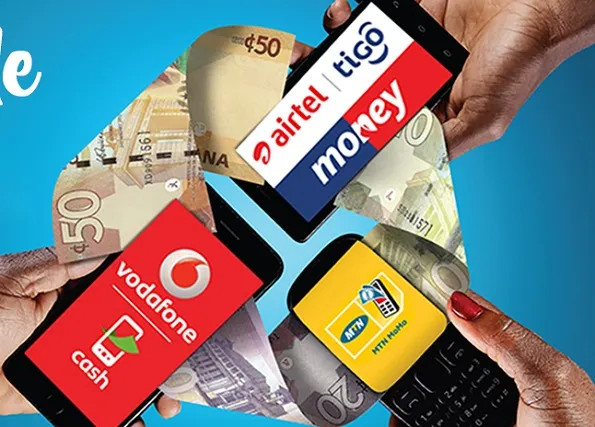The finance minister, Ken Ofori Atta, announced the government’s intention to introduce the Electronic Transactions Levy (E-levy) in November last year at the reading of the budget statement for the 2022 financial year.
‘’After considerable deliberation, Government has decided to place a levy on all electronic transactions to widen the tax net and rope in the informal sector. This shall be known as the “Electronic Transaction Levy” or “E-Levy,” Mr Ofori-Atta said.

According to the finance minister, electronic transactions, including mobile money, remittances, and bank transfers would be taxed. A portion of the levy, he said, would be used to support entrepreneurship, youth employment, road infrastructure among others.
The announcement of the proposed tax has courted a heated media and public debate, with fierce resistance from some quarters, especially the opposition political parties.
Many financial interest groups have bemoaned the almost lack of consultations prior to the introduction of the levy.
A fisticuff clash between the two sides in parliament on December 20, 2021, symbolized the height of the contestations on the bill at the legislature. While the majority side of parliament is gunning for it, the minority has opposed it with statements, press conferences, and walkouts
The fate of the E-levy, which was meant to come into effect in February 2022 still hangs in balance as parliament has made no progress on its passage. But what appears to be progress, following the public debates and online protests, is the hint that government is considering withdrawing the current bill with 1.75% of the tax rate and replacing it with one with 1.5%.
The government has in the last few weeks started what appears to be nationwide town hall meetings on the E-levy, sensitising the public and hoping to garner support for it.
President Nana Akufo-Addo said in February 2022 that it was necessary to introduce the E-levy to address some fiscal gap challenges created as a result of covid-19. The president’s words are supported by several other government officials such as the majority leader, the deputy majority leader, and other top government officials who have been defending the need for the introduction of the E-levy.

But Ghana is not the only country that is considering taxing electronic transactions. Across Africa, many governments have already introduced some form of E-levy or are considering introducing same.
In this report, Fact-Check Ghana looks at how Ghana’s mobile money (Momo) tax compares with similar taxes introduced in other African countries.
Uganda: Bank transactions not included in tax
In Uganda, there are 27 million registered mobile money users. In May 2018, the government of Uganda proposed a 1% levy on mobile money transactions. Stakeholders in the sector complained that they were not consulted in the policy formulation process. According to a report by Global System for Mobile Communication (GSMA), stakeholder consultation was “rushed”, and many parties including internal technocrats, opposition MPs, mobile money operators, civil society and international organizations were left out of consultations. The Ugandan version of this tax, however, does not include bank transactions. After widespread public outcry and opposition, the government reduced the tax to 0.5% in November 2018.
The tax was introduced in May 2018, by August 2018, overall person-to-person transaction values had dropped by more than 50%, according to the GSMA report. Industry transactions also dropped by 24% that same year. According to the report, many mobile money users had turned their attention to “lower value transactions” such as the use of cash and banks.
The GSMA reports that while mobile money volumes remain optimal, the average transaction values per user have decreased, suggesting that people are limiting the amount of transactions they make using mobile money. At the same time, it observes that larger value tiers, such as industry users have not returned to mobile money, but have remained with the banking system.
Congo: Govt makes U-turn on tax details
In Congo DR, the situation is no different. The tax policy process that resulted in the introduction of a mobile money tax has been described as ‘a chaotic affair’ by the GSMA. The GSMA also reports that local civil society felt the government was only interested in “imposing” policies on citizens instead of consulting. The government introduced a 1% tax in 2019 and was applicable to both mobile money and electronic bank transactions. However, because of the protests that followed the introduction of the policy, the government was forced to review the policy to only cash-out transactions on Mobile-Mobile Payments (MMPs).
By October 2019, mobile money businesses started recording negative results. Mobile money operators observed that people began to withdraw higher values from their accounts, and the number of active mobile money agents started to decline. The government of Congo has since given assurances that it would review the tax.
Cote D’Ivoire: Govt withdraws tax
Similar results have also been observed in Cote D’Ivoire. The government quickly withdrew its 0.5 percent mobile money tax which it introduced in 2018 after widespread public outcry. Many stakeholders including the Federation of Consumers and Stakeholders, deplored lack of consultation prior to the decision.

When the concerns grew, the government came into an agreement with the mobile money service providers to absorb the fees instead of passing them to consumers. As a result of this agreement, the service providers absorbed the tax.
Malawi: Government withdraws tax
The government of Malawi also introduced a 1% tax in 2019 amidst huge public outcry and opposition. The public, key among them being civil society and other consumer groups, argued that tax was going to derail the efforts to promote financial inclusion and discriminate against the poor. In October 2019, the government removed the tax.
Tanzania: Telcos deplore declining revenue after momo introduction
In Tanzania, Telecom companies said they noted ‘an immediate change’ since the government introduced a 0.1 percent levy on mobile money transactions. According to the Telcos, revenues have since been declining drastically because consumers are no more using mobile money services. Describing the situation, the Chief Executive of Vodacom, Hisham Hendi, said “the situation is not good at all”, highlighting the bad situation they are currently facing as a result of the tax.
Benin: Withdraws social media tax, introduces mobile money tax
Benin is currently considering applying its existing digital tax to mobile money amidst wild criticism from the public and other stakeholders. In January 2022, the government of Benin announced that the existing 5% tax on digital services would also apply to mobile money operators, making the country the latest African country to introduce a tax on mobile money services.
The reaction from the public has not been different from the reactions that greeted the introduction of Benin’s social media tax in 2018. That tax was fiercely resisted by the public and later revoked by the government after several days of online protests and agitation. Policy analysts and stakeholders in the sector have criticized the current tax move, calling it “a bad idea” that is “not warranted”.
Cameroun: Govt passes 0.2% momo tax despite protests
Cameroun introduced a 0.2% tax on mobile transactions in February 2022, which applies to both withdrawals and deposits. The only exemptions from the tax are bank transfers and electronic transactions carried out to pay tax and customs duties.
As one of the most widely used services in Cameroun among the middle and low-income class, the tax has been criticized as “unfair”. At some time, anti-momo tax hashtag campaigns were trending on Twitter in hopes that the government would reconsider the tax requirements.
The table below shows an outlook of how the E-levy or mobile money has been implemented in other African countries and how the policy has responded to market changes and public pressure.
| Country | Originally intended percentage | After public protests |
| Uganda | 1% | – Reduced from 1% to 0.5%– 50% drop in P2P transactions
– 24% drop in industry transaction |
| Congo | 1% | Replaced with cashouts only |
| Cote d’Ivoire | 0.5% | Withdrawn after public outcry |
| Malawi | 1% | Withdrawn after public outcry |
| Benin | 5% on Momo operators | Implemented under widespread public opposition |
| Cameroun | 0.2% | 0.2% |
What’s happening in Ghana
The reaction of Ghanaians to the E-levy bill has not been different from how similar tax proposals were received by citizens of other African countries mentioned in this report. Although the government projects a 24% decline in transactions when the levy is finally implemented, preliminary findings published by the bank of Ghana indicate the value of mobile money transactions had dropped by 3.2 billion in December 2021, less than 2 months after the proposal to introduce E-levy. The report further indicates that compared to November, transactions decreased by 3.8 percent.
It is not immediately clear the fate of the E-levy when it is finally implemented in Ghana, but facts from how the levy has performed in other African countries provide valuable lessons for Ghana.
In these countries, widespread complaints and opposition from civil society, opposition political parties, stakeholders, and the general public have modified its implementation, and in some cases, total cancellation.
The Government of Ghana appears bent on passing the bill, but what looks very probable is a reduction in electronic transactions by consumers.
The writer of this report, Redeemer Buatsi, is a fellow of the Next Generation Investigative Journalism Fellowship at the Media Foundation for West Africa (MFWA).
You may also be interested in:

















![EC Announces Elimination of Indelible Ink in Upcoming Elections [Video]](https://newsonghana.com/wp-content/uploads/2023/12/image-351-218x150.png)











































